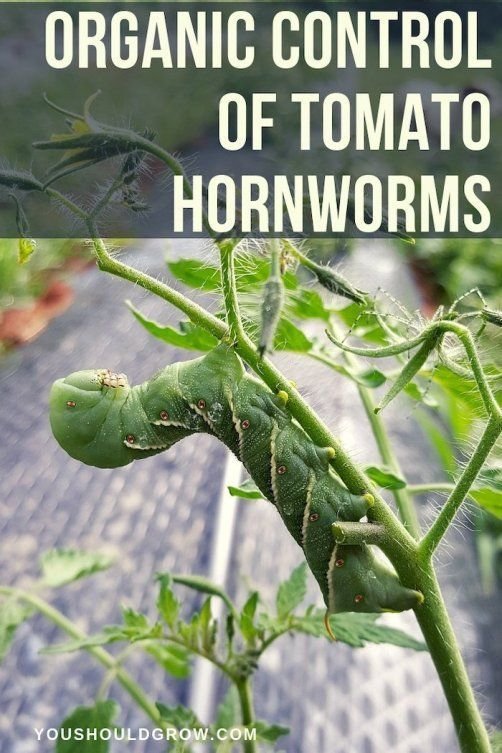
Think of hornworms as uninvited guests at your garden party. They might seem harmless at first, but they can quickly turn into the life of the party—eating everything in sight! The good news is we have several friendly tactics up our sleeves to show these pests the door without resorting to harsh chemicals.
So, grab a cup of coffee, and let’s dive into this garden rescue mission together.
Understanding Hornworms: The Problem in Your Garden
Before we can effectively deal with hornworms, it’s essential to understand who we’re up against. These caterpillars belong to the tomato hornworm species, specifically the larvae of the Five-spotted Hawk Moth. They’re usually about 3 to 4 inches long, bright green with a distinctive horn on their rear, making them easy to spot—if you can get past the shock of seeing your plants being chomped down.
Hornworms usually appear on tomato, eggplant, and pepper plants. They’re voracious eaters, capable of stripping a plant of its foliage in just a few days. If left unchecked, they can seriously harm your garden’s health and productivity. The key to handling these pests is catching them early. A little vigilance will go a long way in protecting your plants.
Hand-Picking: Your First Line of Defense
One of the simplest and most effective ways to remove hornworms is through hand-picking. Here’s how you can do it:
- Time Your Search: Early mornings or late afternoons are ideal since hornworms are most active during the cooler parts of the day.
- Look Carefully: Inspect the undersides of leaves and the stems of your plants. Hornworms camouflage remarkably well, so take your time and look closely!
- Wear Gloves: If you’re squeamish about touching these little guys, wearing gardening gloves can make the task feel less icky.
- Relocate Them: Once you find a hornworm, simply pluck it off your plant. You can toss it into a bucket of soapy water, or relocate it far away from your garden.
Honestly, hand-picking may seem tedious, but it’s one of the most effective methods. Plus, it gives you a great opportunity to check the overall health of your plants.
Attracting Beneficial Insects to Your Garden
Another clever strategy for managing hornworms naturally is to attract beneficial insects. This method might feel like sending in the heavies to handle your pest problem. Many insects are natural predators of hornworms, and inviting them to your garden can significantly reduce their numbers.
- Ladybugs: Known for their love of aphids, ladybugs also munch on hornworm eggs. You can attract them by planting flowers like marigolds and daisies.
- Lacewings: These insects are another great ally. Their larvae feed on hornworms and other pests. Planting herbs like dill and fennel can help bring them to the area.
- Parasitic Wasps: Sounds scary, right? But these tiny wasps lay their eggs inside hornworms, ultimately killing them. You can buy these wasps online or at garden stores.
By creating a welcoming habitat for these helpful insects, you not only minimize hornworm damage but also enhance your garden’s ecosystem.
Using Natural Sprays and Homemade Remedies
If hand-picking and attracting beneficial insects don’t sound appealing, you might be interested in some homemade remedies. Several natural sprays can deter hornworms without resorting to harsh chemicals:
- Soap and Water: Mix a few drops of dish soap with water in a spray bottle. This solution can suffocate hornworms when sprayed directly on them.
- Neem Oil: Derived from the seeds of the neem tree, this organic oil disrupts the life cycle of pests. Mix it with water according to the instructions on the bottle and spray it on affected plants.
- Garlic Spray: Blend garlic cloves with water and let it steep overnight. Strain it and spray it on your plants. The strong smell is a great deterrent for hornworms.
These natural sprays not only help remove hornworms but are also less harmful to beneficial insects and the environment.
Encouraging Healthy Plant Growth
One of the best ways to prevent hornworm infestations is by ensuring your plants are healthy. Strong, well-maintained plants can better withstand pest attacks. Here are a few tips for promoting robust growth:
- Soil Health: Invest in quality soil rich in organic matter. Healthy soil contributes to healthy plants, making them less susceptible to pests.
- Regular Watering: Keep your plants hydrated but avoid overwatering. Consistent watering helps plants thrive.
- Crop Rotation: Change the location of your plants each year. This strategy limits the chances of pests returning to the same spot.
By fostering a thriving garden environment, you create a less inviting space for hornworms and other pests.
Companion Planting: Strategic Partnerships in Your Garden
Companion planting can be a game-changer in your fight against hornworms. This practice involves planting different species together to enhance growth and deter pests. Some effective combinations include:
- Marigolds: These vibrant flowers not only brighten your garden but also repel various pests, including hornworms.
- Basil: Planting basil near tomatoes can improve flavor and repel pests.
- Chives: These herbs don’t just add flavor to your dishes; they can also repel aphids and other pests that attract hornworms.
By thinking strategically about the plants in your garden, you can create an ecosystem that fights back against hornworms naturally.
Regular Monitoring: The Key to Early Detection
Finally, regular monitoring is crucial when dealing with hornworms. By checking your plants frequently, you can catch these pests before they cause significant damage. Here’s a quick checklist for effective monitoring:
- Daily Inspections: Spend a few minutes each day looking at your plants, especially during the growing season.
- Keep an Eye on Leaves: Look for holes, droppings, or unusual color changes that could indicate a hornworm presence.
- Track Growth: If plants start to look stunted or unhealthy, investigate further.
Being proactive can save you a lot of stress and work down the line.
In closing, dealing with hornworms doesn’t have to involve chemicals or extreme measures. With hand-picking, natural sprays, beneficial insects, and a little gardening know-how, you can protect your plants while keeping your garden healthy and thriving. Remember, the goal is to work with nature, not against it. Enjoy your gardening journey—your plants will thank you!

